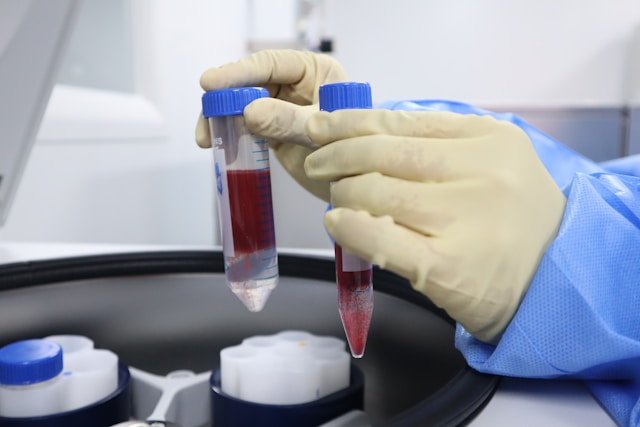New therapy triples remission time for myeloma, offering hope to thousands on the NHS in the UK first
In a world-first breakthrough, the NHS in England will offer a revolutionary blood cancer therapy that dramatically extends remission in myeloma patients. The cutting-edge treatment, described as a “Trojan horse” approach, promises to transform thousands of lives by delivering toxic drugs directly into cancer cells while sparing healthy tissue.
Belantamab mafodotin, developed in the UK by GSK, binds potent chemotherapy to antibodies that precisely target cancerous plasma cells. Once absorbed, these cells are destroyed from within, halting the spread of multiple myeloma for up to three times longer than current treatments.
Paul Silvester, 60, from Sheffield, has already experienced the life-changing effects of the new drug. Diagnosed nearly two years ago after the disease fractured his back, Paul initially underwent a bone marrow transplant. However, his cancer returned last Christmas. He then joined an early access scheme for belantamab mafodotin, which sent him into remission within weeks.
“Other treatments would have left me isolating in my bedroom for months,” Paul told the BBC. Instead, the new therapy has allowed him to spend valuable time with his family. A history enthusiast, Paul is now planning a trip to Hadrian’s Wall and looking forward to celebrating his daughter’s graduation.
“My life feels normal again,” he said. “Most people say I look really well. It’s absolutely life-changing.”
The innovative treatment works by using laboratory-engineered antibodies that seek out unique markers on myeloma cells. After latching onto the cancer, they are absorbed, releasing the chemotherapy payload directly inside the malignant cells—killing them with precision while reducing the severe side effects often associated with traditional chemotherapy.
Embed from Getty ImagesThe Trojan horse comparison draws from the legendary Greek tale where soldiers hid inside a wooden horse to infiltrate Troy. Here, the toxic drug hides within the antibody, bypassing healthy cells to launch a targeted attack.
Clinical trials revealed that belantamab mafodotin halted the progression of myeloma for an average of three years, compared to just 13 months with existing therapies. Though myeloma remains incurable, this advancement offers patients extended periods free from both the disease and its debilitating symptoms.
Professor Peter Johnson, NHS England’s national clinical director for cancer, hailed the breakthrough. “Although we may not be able to cure the illness, giving patients time free of disease is incredibly important,” he said. “Using antibodies to deliver chemotherapy directly into cells is making a big difference.”
Around 33,000 people are currently living with myeloma in the UK. The new drug will be used for patients who relapse after initial treatment, with approximately 1,500 patients expected to benefit annually. The National Institute for Health and Care Excellence (NICE) approved the therapy after deeming it cost-effective for NHS use.
While belantamab mafodotin significantly reduces side effects, it is not without risks. As dead cancer cells break down, some residual chemotherapy may leak into the body, occasionally causing dry eyes and blurred vision. Paul receives an infusion roughly every two months, with others receiving it every three weeks as trials continue to fine-tune dosage schedules.
Professor Martin Kaiser, leading myeloma molecular therapy at the Institute of Cancer Research, described antibody-drug conjugates like belantamab mafodotin as “very smart drugs,” highlighting their remarkable reduction in side effects. He believes such drugs mark a major step toward long-term remission rates exceeding 50% within five years.
The technology behind antibody-drug conjugates is also being explored for other cancers, including breast, stomach, and bowel cancers, though challenges remain in designing antibodies that exclusively target cancer cells.
Shelagh McKinlay of Myeloma UK called the NHS approval “transformative,” adding, “It’s fantastic to see the UK leading in myeloma treatment.” Health Minister Karin Smyth praised the move as placing the NHS “at the forefront of cancer innovation.”
